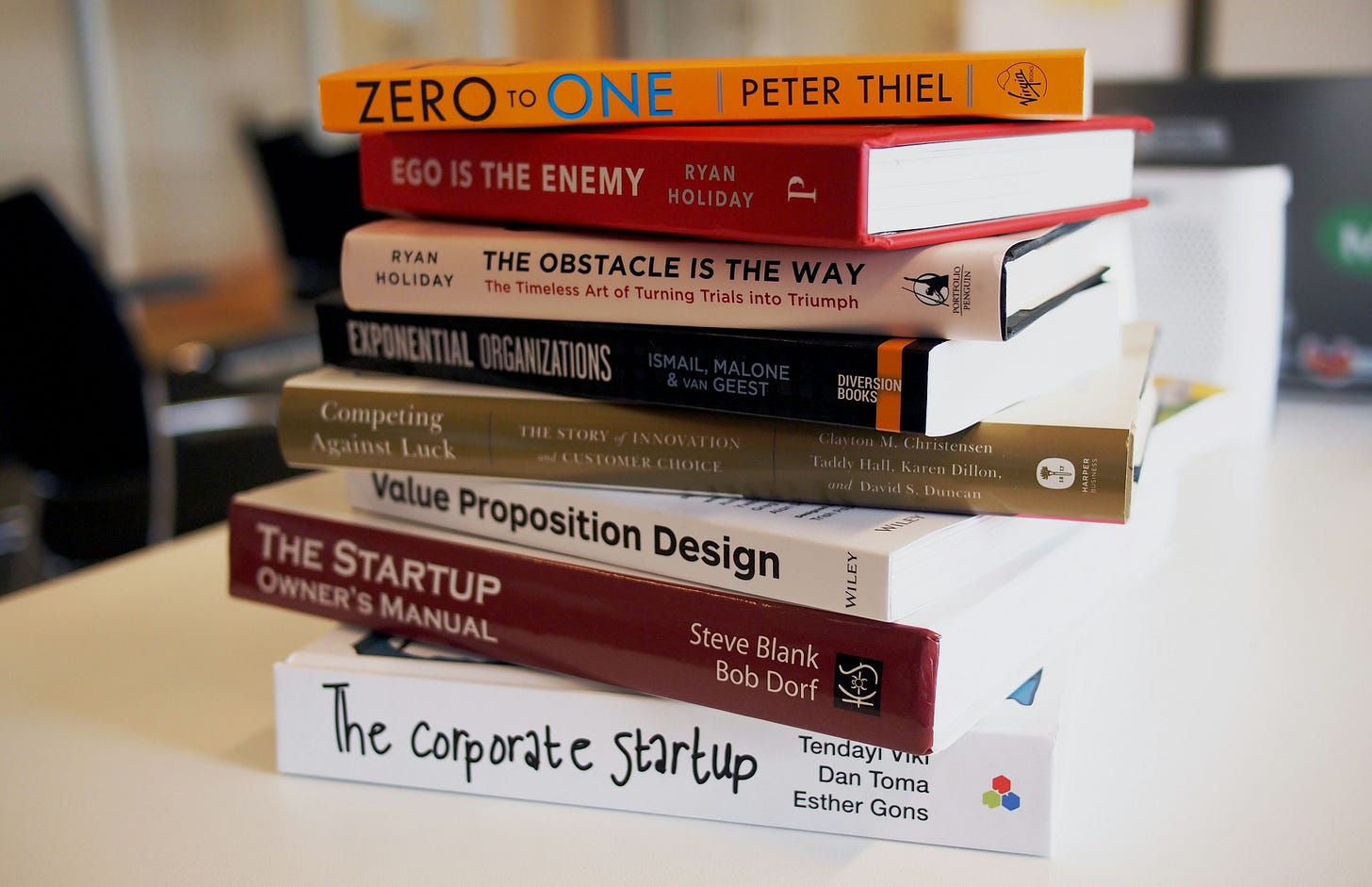The IPOs That Never Came
Listing on the NGX feels like a downgrade
If you missed last week’s newsletters, catch up here and here. If this email was forwarded to you, subscribe here for free:
TOGETHER WITH CREDIT DIRECT
Life moves fast, but your needs should not stay on hold because access is uncertain.
Credit Direct Checkout lets you make decisions with intention, not pressure. That way, you can stay consistent with the life you are building.
The IPOs That Never Came
Tap the startup founder next to you and ask what they need right now. I’ll bet they won’t get to the third item before they say money. Startups need money to grow, to hire, and to convince engineers that their equity is worth more than the piece of paper it’s written on.
But money has been particularly slippery since 2022, when foreign investors rushed to the exit the moment the Zero Interest Rate era ended. Local investors tried to fill the gap, but the rough consensus is that they simply don’t yet have the firepower to replace the easy millions foreigners brought. Founders improvised, using structured debt here and revenue-based financing there. One or two startups flirted with commercial papers (Fairmoney, Payaza).
It made sense that in the midst of this 2021–2022 conversation, the Nigerian Exchange (NGX) smelled an opportunity. Its pitch to startups was: if global capital won’t come to you, come home. We’ll build a board designed specifically for high-growth companies.
That’s how we got the NGX Technology Board: a specialised platform, with rules approved by the Securities and Exchange Commission on December 15, 2022, for tech companies to list and raise capital, split into a Start-Up Tech segment and a Big Tech segment depending on market cap.
It was Nigeria’s answer to London’s AIM or NASDAQ’s smaller-cap markets. A homegrown on-ramp for tech IPOs. A place where Flutterwave, Andela, Interswitch, or scrappier mid-stage companies could raise growth capital locally and let ordinary Nigerians own a piece of the digital economy they use every day. The Startup Act crowd saw it as a “confidence booster” that could finally link startups to the capital market.
Three years later, the number of tech startups that have actually listed on the Tech Board is still zero. Tizeti, the only startup that publicly said it was considering an NGX listing, still hasn’t listed. And despite repeatedly being wooed by the Federal government, complete with a State House visit where Tinubu promised support for fintechs, a Flutterwave NGX IPO remains in the realm of political aspiration.
So what went wrong?
A new report by TLP Advisory offers answers.
According to their survey, 53% of founders who haven’t considered an NGX listing don’t understand how local listings work or why they should pursue them. Nearly half say they’d prefer an acquisition over an IPO, and only about one in five would consider an IPO at all, with many of that minority already thinking of foreign exchanges.
Meanwhile, 77% of funded startups have raised in dollars but earn revenue in naira, creating a built-in structural incentive for offshore exits.
Then there’s the market itself. With a total market cap of ₦66 trillion as of April 2025, the NGX is roughly the value of a single mid-tier US tech company. Drop one or two $2–3 billion Nigerian unicorns into that pool, and you could bend the whole thing around them and create worries about concentration risk and liquidity. Investors want exposure to growth, but will the order book for a ₦1–2 trillion IPO be there when they need to sell?
Additionally, the way the ecosystem is wired makes a Lagos IPO feel like a downgrade. Investors price these companies in dollars. Valuation benchmarks are set against Stripe, Adyen, Nubank and even Chime.
A naira listing on a shallow market almost guarantees a haircut compared to your last private round. Even if a founder wakes up one morning feeling patriotic and says, “Let’s list in Lagos,” their own cap table will punish them for the thought. Dollar investors want dollar comparables and dollar liquidity. A local listing that compresses multiples is, on paper, an own goal.
The result is a weird equilibrium. The government has been lobbying Flutterwave since at least 2023 to list on the NGX, pitching it as the kind of flagship IPO that could “energise” the market and attract others to follow. TLP’s report says founders don’t understand the process and prefer other exits. The NGX, for its part, keeps talking about reform, segments, and pipeline. Everyone is facing the same direction in public; privately, everyone optimises for an outcome that happens somewhere else.
The people who lose the most in all of this are ordinary Nigerians. We supply the customers, the staff, the infrastructure risk, and in many cases the regulatory headaches. Foreign capital supplies the cheques. When these companies eventually find liquidity, it will most likely be in London or New York. The upside will accrue to LPs in funds domiciled far away, while the average Nigerian who has spent a decade using these platforms, and living with the consequences when they fail, never gets near the cap table.
If the federal government really wanted one big, credible local tech listing, it wouldn’t just lobby Flutterwave. It would provide long-term faith that you won’t be punished for holding naira assets. It would give pension funds clearer room to buy growth names, and work with the NGX on structures: dual listings, currency hedges, better research coverage, that make a local IPO feel like a step-up. Until something like that happens, the Tech Board will remain what it is today: a very nice room with the lights on, the DJ ready, and nobody willing to be the first on the dance floor.
Let’s create a commission
Running a business in Nigeria is brutal, but these days, running a fintech startup might just be the easiest way to find out if there’s a history of hypertension in your family.
This month, I’ve written twice about some truly preposterous ideas from Abuja targeting fintechs. First, a bill to create a fintech regulatory commission because, obviously, what Nigeria needs is more agencies and licences. I blame that lad at Fintech Is Easy for some of this.
There’s also the fact that if you’re a fintech that offers loans, your compliance team is probably locked in a room right now, racing to comply with the Federal Competition and Consumer Protection Commission’s (FCCPC) regulations before a January 5 deadline.
But what’s entrepreneurship without even more curveballs?
In 2023, the House of Reps introduced a “A Bill for an Act to Ensure Proper Control of Usage of Artificial Intelligence (AI) Technology in Nigeria and for Related Matters” sponsored by Hon. Sada Soli. The bill made some noise before settling down quietly in the National Assembly’s document graveyard.
It went nowhere for a while so when lawmakers dusted it off in 2024, they realised in rather comical fashion, that they had multiple AI bills floating around. One wanted to regulate the use of AI. Another wanted to create a National AI Institute. A third bill proposed the establishment of AI and Robotics Regulation Commission. The legislators decided to consolidate all the bills into one super-bill.
That merged version, the bill to establish the National Institute for Artificial Intelligence and Robotics Studies Regulation Commission (yes, that entire mouthful), passed second reading on December 3, 2024, and is still under deliberation in the House.
Within this larger framework, the bill aims to regulate AI “development, deployment, and use” across the country. On paper, it’s meant to ensure proper oversight. Still, it’s hard to shake the feeling that this is another layer of licensing and supervision waiting to sit across whatever the private sector builds.
And this is where fintechs, especially lenders, re-enter the picture. Nigerian lenders have spent the last few years telling anyone who will listen that their underwriting is powered by AI, including models, machine learning, behavioural scores, all that good stuff. The AI bill takes them at their word. The bill classifies automated systems used for credit decisions, fraud detection within its jurisdiction and suggests that they must be registered, documented, and overseen by the new commission.
The bill is at odds with the recently launched National AI Strategy, which is keen to see Nigeria become an AI hub. We have a National AI Strategy that says, “Build fast, transform the economy, export talent,” and a legislative instinct that says, “Not so fast, let’s create a commission.”
That’s about it for today. See you on Sunday!
Leaving a comment or a like helps me know I’m not just shouting into the void!





I just wanted to comment on the quality of research that goes into producing this newsletters. Something truly worthy of a National Archive.
Objection - Speculation.